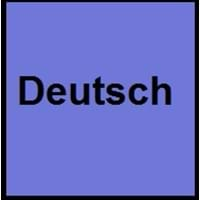Countries
Austria, Belgium, Germany, Italy, Liechtenstein, Luxembourg, Switzerland
Japan
National Language
Germany
Japan
Second Language
North Dakota, United States of America
Not spoken in any of the countries
Speaking Continents
Europe
Asia, Pacific
Minority Language
Czech Republic, Denmark, Former Soviet Union, France, Hungary, Italy, Namibia, Poland, Romania, Slovakia, Slovenia
Palau
Regulated By
Council for German Orthography
Agency for Cultural Affairs (文化庁) at the Ministry of Education
Interesting Facts
- One of the large group of Indo-Germanic languages is German.
- The second most popular Germanic language spoken today behind English is German language.
- In Japanese Language, there are 4 different ways to address people: kun, chan, san and sama.
- There are many words in Japanese language which end with vowel letter, which determines the structure and rhythm of Japanese.
Similar To
Dutch, Danish, Norwegian, Swedish and English Languages
Korean Language
Derived From
Albanian Languages
Not Available
Alphabets in
German-Alphabets.jpg#200
Japanese-Alphabets.jpg#200
Writing Direction
Left-To-Right, Horizontal
Left-To-Right, Horizontal, Top-To-Bottom
Hello
hallo
こんにちは (Kon'nichiwa)
Thank You
Danke
ありがとう (Arigatō)
How Are You?
Wie geht es dir?
お元気ですか (O genki desu ka?)
Good Night
gute Nacht
おやすみなさい (Oyasuminasai)
Good Evening
guten Abend
こんばんは (Konbanwa)
Good Afternoon
guten Tag
こんにちは (Konnichiwa!)
Good Morning
guten Morgen
おはよう (Ohayō)
Please
bitte
お願いします (Onegaishimasu)
Sorry
Verzeihung
ごめんなさい (Gomen'nasai)
Bye
Tschüs
さようなら (Sayōnara)
I Love You
Ich liebe dich
愛しています (Aishiteimasu)
Excuse Me
Entschuldigung
すみません (Sumimasen)
Dialect 1
Swiss German
Sanuki
Where They Speak
Switzerland
Kagawa
Dialect 2
Swabian German
Hakata
Where They Speak
Germany
Fukuoka
How Many People Speak
Not Available
Dialect 3
Texas German
Kansai
Where They Speak
Texas
kansai
How Many People Speak
Not Available
Second Language Speakers
Not Available
Alternative Names
Deutsch, Tedesco
Not Available
French Name
allemand
japonais
German Name
Deutsch
Japanisch
Pronunciation
[ˈdɔʏtʃ]
/nihoɴɡo/: [nihõŋɡo], [nihõŋŋo]
Ethnicity
Germans
Japanese (Yamato)
Origin
6th Century AD
1185
Language Family
Indo-European Family
Japonic Family
Subgroup
Germanic
Not Available
Branch
Western
Not Available
Early Forms
No early forms
Old Japanese, Early Middle Japanese, Late Middle Japanese and Early Modern Japanese
Standard Forms
German Standard German, Swiss Standard German and Austrian Standard German
Japanese
Signed Forms
Signed German
Signed Japanese
Scope
Individual
Individual
ISO 639 6
deus
Not Available
Glottocode
high1287, uppe1397
nucl1643
Linguasphere
52-ACB–dl & -dm
45-CAA-a
Language Type
Living
Living
Language Linguistic Typology
Subject-Object-Verb, Subject-Verb-Object
Subject-Object-Verb
Language Morphological Typology
Fusional, Synthetic
Agglutinative, Synthetic
All German and Japanese Dialects
Most languages have dialects where each dialect differ from other dialect with respect to grammar and vocabulary. Here you will get to know all German and Japanese dialects. Various dialects of German and Japanese language differ in their pronunciations and words. Dialects of German are spoken in different German Speaking Countries whereas Japanese Dialects are spoken in different Japanese speaking countries. Also the number of people speaking German vs Japanese Dialects varies from few thousands to many millions. Some of the German dialects include: Swiss German, Swabian German. Japanese dialects include: Sanuki , Hakata. Also learn about dialects in South American Languages and North American Languages.
German and Japanese Speaking population
German and Japanese speaking population is one of the factors based on which German and Japanese languages can be compared. The total count of German and Japanese Speaking population in percentage is also given. The percentage of people speaking German language is 1.39 % whereas the percentage of people speaking Japanese language is 1.90 %. When we compare the speaking population of any two languages we get to know which of two languages is more popular. Find more details about how many people speak German and Japanese on German vs Japanese where you will get native speakers, speaking population in percentage and native names.
German and Japanese Language Codes
German and Japanese language codes are used in those applications where using language names are tedious. German and Japanese Language Codes include all the international language codes, glottocodes and linguasphere.





